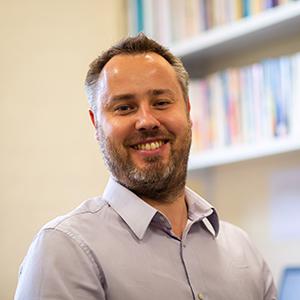
In the spring of 2022 after returning from the Christmas break I was browsing the University Staff Development pages and came across the Carbon Literacy training. I was aware of the University’s green credentials and its declaration of a climate emergency but I couldn’t quite see the link between this and my role as a Lecturer in the Department for Children and Families. What relevance might the course have for my students who are destined to work in the education and child and family support sectors? And as a Head of Department, what could I learn about Carbon Literacy that would be worthwhile sharing with colleagues and what influence might it have? With my curiosity sparked I signed up for the programme and took the first steps in my journey to understanding some of the roles carbon plays in our everyday and work lives.
The training is divided into four sessions with the first two being orientated towards understanding the latest scientific evidence we have about the impact we are having on the planet. Before the course I was already interested in environmental issues and I thought I had a fairly good handle on the facts. However, the course introduced me to information I knew nothing about and, in some cases, revealed that I was in fact misinformed about some of the things I thought I was doing ‘right’. I found that one of the strengths of the course was the constant motion between the science and some tools that were provided which allowed you to audit your everyday activity and practices. This allowed me to begin to ask questions about what practical changes I could make but with an awareness of our current understanding of best practice and not just by following popular trends or blind faith.
In the final two sessions the focus moves towards planning for action and they put some pretty challenging statistics and numbers against some of my everyday choices, from the use of electric cars to the impact of different ingredients and recipes. This certainly provided a stimulus for me to think more deeply about my own lifestyle choices but it also made me thoughtful about the students on the courses I teach on and how these messages might be conveyed to them. After these sessions I felt empowered to take the first steps in using a language of carbon literacy when talking with others.
A narrative that played throughout the sessions was around the seriousness of our current position and the importance of action now. The impact and influence of narrative is a central concern for the Department for Children and Families. We are currently exploring Social Pedagogical approaches to working with our students and through them ways of working with children and families. Social Pedagogy involves identifying some core values that structure our relationships with other humans and which we live by both at work and in our wider lives. It struck me that much of the Carbon Literacy training was underpinned by a similar relationship with the environment and the planet. In much the same way that a Social Pedagogue cannot switch on and switch off deeply held values when they go home or start work, as a human community we cannot view making a positive environmental contribution as something we do when it is convenient or in front of certain audiences. Our relationship with planet should be as consistent as our relationship with other humans.
At the end of the four training sessions I was invited to apply for accreditation. This involved making two pledges for changes I would make, one as an individual and one as a group. My focus for both of these was around promoting positive narratives of change. It is very easy to become quickly disheartened in the face of facts about climate change but the knowledge that the Carbon Literacy training has provided me has helped me reflect on my values and those of my colleagues and students. From this I developed the notion that our relationship with our planet is predicated on our relationship with other human beings and what we do to one should reflect what we do to the other. I am now taking this narrative forward into my work with the Sustainable Futures Research Interest Group and we are currently working on ways to avoid the polarising impact of facts and working towards inspiring practical change. I would encourage you to consider the Carbon Literacy training, becoming a member of the Sustainable Futures Research Interest Group or Social Pedagogy Research Group at the University or to find out more about our taught courses to see for yourself where they might take you.
